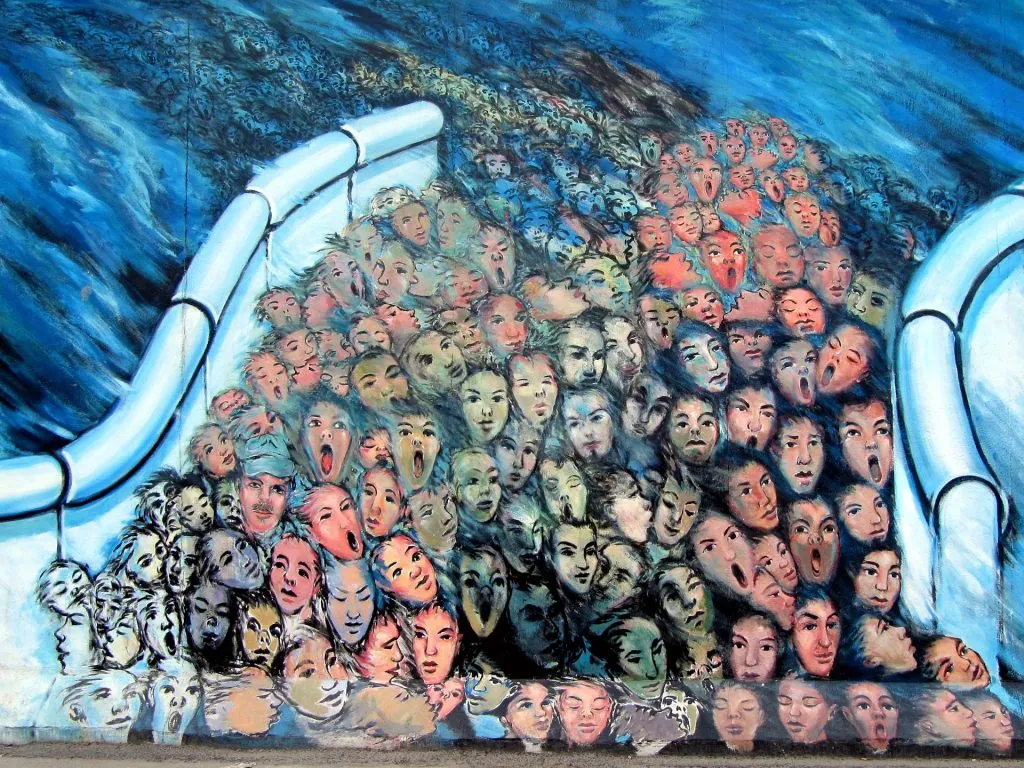What’s the Big Deal Anyway? When You’re Afraid You’re Being Too Demanding.

“Change does not roll on the wheels of inevitability, but comes through continuous struggle.”
Martin Luther King Jr.
PHOTO-BOMB
A teacher friend of mine told me this story about waiting in line at school with a first grader in a wheelchair. It was picture day and my friend’s task was to bring the boy, who has profound disabilities, to get his picture taken. As the picture line snaked about to its final destination, my friend realized there was a problem.
The line terminated on stage in the auditorium and to get there, you had to go up a series of steps. There was no ramp. No one had considered those kids with physical disabilities when they arranged the photo op.
After an awkward conversation directing the photographers to move all of the equipment off of the stage onto the ground to accommodate this little boy, (oh, the inconvenience!) the problem was solved.
Another story:
A few years ago, our son Jack had his pictures scheduled for the day before his first day of junior high. My poor husband Mike took him to the photographer at the appointed time solo, because I wasn’t able to come. Since Jack can’t stand for long periods of time, Mike asked the photographer for a chair so Jack could sit down while having his picture taken. Otherwise, he’d just collapse onto the ground.
The photographer refused Mike’s request because “everyone stands when they get their picture taken” and it would “take too long” to get a chair for Jack. Already drained from the struggle to get Jack to school, and against his better judgement, Mike complied.
And so, as Mike predicted, Jack collapsed to the ground. Mike would haul jelly-legged Jack to standing before each failed photo attempt. You can only imagine Mike’s impossible dream of propping up 100 pounds of Jack for just one damn picture where his head was in the general direction of the camera.
The line grew longer. Time was passing. Kids openly staring.
Mike’s cheeks burned as a trickle of sweat rolled down his back.
Finally, the photographer put an end to this torture (time was a-wastin’!) and came to his own conclusion that yes, Jack did need a chair. Only then was the decision made to get one.
BATHROOM BLUES
And yet another example:
We were at an annual multi-hour family event during the summer years ago. The powers-that-be decided that regular bathrooms in the building should be locked and unavailable to the public, so as to eliminate the mess and waste that comes with such large gatherings. Only a few stuffy and cramped port-a-potties were outside to answer nature’s call.
(Highly impractical when you must assist someone your own size with their toileting).
I could have called a meeting/written a letter/made some noise in the hopes of getting accommodations for those with disabilities in future events. But I didn’t. Instead, that day I left early with Jack. Jack and I did not attend on subsequent years. It was just simpler that way.
As a parent, it’s easy for me to speak up about the big issues concerning Jack, but it’s the tiny daily issues that get me. Death by 1,000 paper cuts.
I used to think that because there are so many big issues to deal with, I shouldn’t address the inconveniences and inaccessibility that crops up for Jack on a daily basis. But I’ve come to question how often I use that reasoning as a justification that lets me off the hook.
ROLE MODEL
I just got back from a disability conference this week where I listened to an amazing woman, Haben Girma. She is a Harvard-educated disability rights lawyer and advocate, who just happens to be blind and deaf.
She shared the following story:
When Haben was a freshman in college, the cafeteria was a minefield. Initially there were no accommodations for her disability and so, since she is blind and deaf, she relied on her sense of smell to know what was being served — an unfortunate situation for anyone to be in, and especially when you’re a vegetarian like she is!
One day, she summoned up her courage to request a daily menu emailed to her that she could access through her special communication device. The manager refused.
“It’s too much work to do for just for one person,” he said.
So she went home and did her research. She learned that federal law said he had to accommodate her disabilities.
The next day she went back and told the manager that his refusal was illegal and that she would retain a lawyer if he didn’t comply. And so he did. In that moment, a disability advocate was born.
She went on to say that over time she realized that because she spoke out, it made it easier for those down the road with disabilities. In fact, the next student who attended the college did not have to fight that particular battle for inclusion. Haben had already won it.
Haben used this story to illustrate the series of what she terms “micro-barriers” that people in the disability community face. She put language around something I previously had no words for.
GETTING THROUGH THE DAY
I’m sure we can all agree that parenting all by itself is exhausting. But when you add a series of micro-barriers to your day, that feeling grows exponentially.
How often is that we don’t even consciously notice these little mini-obstacles that we awkwardly hurdle as we sprint through our days? How much time and energy do we, who are directly and indirectly impacted by disabilities, contort ourselves to fit into a world not designed for those who are different? Is it better to continue on accepting things as they are, or is it more important to speak up for accommodations, regardless of our own discomfort?
That being said, sometimes we are just hanging on by our fingernails and advocacy is just a bridge too far. That’s happened to me. I’ve had seasons where all I can do is to get through the day. The unfortunate reality for all of us is that there are times we must live in survival mode. And that’s ok.
But maybe the question we must ask ourselves when we are in a good place psychologically, but are confronted with yet another obstacle–a picture day, a port-a-potty, an inaccessible menu–is this:
Am I avoiding a confrontation because I don’t have the capacity to advocate right now? Or am I simply avoiding a conflict because it’s psychologically easier?
LOOKING FORWARD
I regret that I didn’t take a stand with the port-a-potty. The event where the restrooms were locked doesn’t happen anymore. So it’s too late for me to do anything about it. But I can’t help but wonder what would have happened if I spoke up.
Maybe I would’ve made life easier for others who also needed an accessible bathroom, even if I did choose not to return with Jack.
But as Maya Angelou once said, “When you know better, you do better.”
And so I press on, trying to be more aware and learn from the mistakes of my past.
I’d like to offer this thought too: Countless parents and disability advocates throughout history have fought for accommodations and legal protections so I don’t have to for Jack. And people such as Haben Girma continue to do so on the world stage.
CALL TO ACTION
With all the advocacy that has benefited Jack, the least I can do is speak up when Jack faces a micro-barrier in our own community. Sure, there’s always the chance that I may be unsuccessful, but who knows? Maybe I’ll plant the seed for change that will blossom somewhere down the road. And there’s always the chance that the advocacy will work sooner than I might think.
I urge us all who are in a stable place in our lives, to think not only about our own children and families, but about those who come after us, who may not be in a position to advocate for themselves.
If no one makes an effort, then nothing ever changes. What do we have to lose? As Haben Girma would say, just a micro-barrier.
Photo by Caro Sodar on Pixabay

